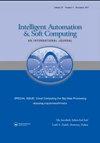Fair and Stable Matching Virtual Machine Resource Allocation Method
IF 2
4区 计算机科学
Q2 Computer Science
引用次数: 0
Abstract
In order to unify the management and scheduling of cloud resources, cloud platforms use virtualization technology to re-integrate multiple computing resources in the cloud and build virtual units on physical machines to achieve dynamic provisioning of resources by configuring virtual units of various sizes. Therefore, how to reasonably determine the mapping relationship between virtual units and physical machines is an important research topic for cloud resource scheduling. In this paper, we propose a fair cloud virtual machine resource allocation method of using the stable matching theory. Our allocation method considers the allocation of resources from both user’s demand and cloud computing resource provider’s request. When multiple users apply for resources, firstly select a user by user priority, and then deal with this user’s task. Because the user priority is dynamic, so as to avoid a user’s long-term share of resources. This strategy makes user task scheduling is relatively fair. On the basis of weighing the fair allocation of user resources, the stable matching between physical machines and virtual machines is achieved. Our simulation experiments especially given that the main focus of the paper is not to develop a very novel algorithm, but to demonstrate our virtual machine resource allocation method, which effectively improves the average utilization rate of computing resources and reduces the operating costs of cloud providers.公平稳定的虚拟机资源匹配分配方法
为了统一对云资源的管理和调度,云平台利用虚拟化技术,将云中的多个计算资源重新集成,在物理机上构建虚拟单元,通过配置不同大小的虚拟单元,实现资源的动态发放。因此,如何合理确定虚拟单元与物理机之间的映射关系是云资源调度的一个重要研究课题。本文利用稳定匹配理论提出了一种公平的云虚拟机资源分配方法。我们的分配方法同时考虑了用户需求和云计算资源提供商的需求。当有多个用户申请资源时,首先根据用户优先级选择用户,然后处理该用户的任务。因为用户优先级是动态的,这样可以避免一个用户长期占用资源。这种策略使得用户任务调度相对公平。在权衡用户资源公平分配的基础上,实现了物理机与虚拟机之间的稳定匹配。我们的仿真实验特别考虑到本文的主要重点不是开发一个非常新颖的算法,而是展示我们的虚拟机资源分配方法,有效地提高了计算资源的平均利用率,降低了云提供商的运营成本。
本文章由计算机程序翻译,如有差异,请以英文原文为准。
求助全文
约1分钟内获得全文
求助全文
来源期刊

Intelligent Automation and Soft Computing
工程技术-计算机:人工智能
CiteScore
3.50
自引率
10.00%
发文量
429
审稿时长
10.8 months
期刊介绍:
An International Journal seeks to provide a common forum for the dissemination of accurate results about the world of intelligent automation, artificial intelligence, computer science, control, intelligent data science, modeling and systems engineering. It is intended that the articles published in the journal will encompass both the short and the long term effects of soft computing and other related fields such as robotics, control, computer, vision, speech recognition, pattern recognition, data mining, big data, data analytics, machine intelligence, cyber security and deep learning. It further hopes it will address the existing and emerging relationships between automation, systems engineering, system of systems engineering and soft computing. The journal will publish original and survey papers on artificial intelligence, intelligent automation and computer engineering with an emphasis on current and potential applications of soft computing. It will have a broad interest in all engineering disciplines, computer science, and related technological fields such as medicine, biology operations research, technology management, agriculture and information technology.
 求助内容:
求助内容: 应助结果提醒方式:
应助结果提醒方式:


